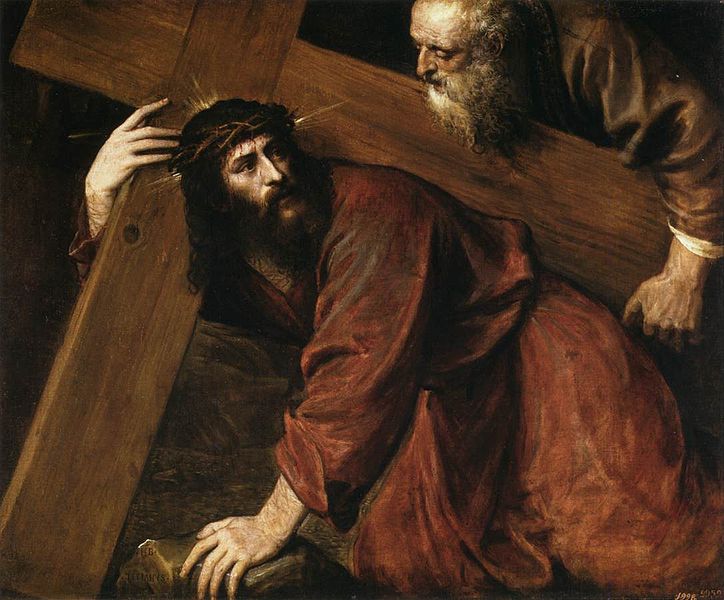
I’ve been reading this book about St. Elizabeth Seton and this section about suffering and the Cross really spoke to me as I’ve been trying to find comforting words for friends who are suffering and hoping that their suffering would be taken away. I found that St Elizabeth offered something very different to her suffering friend: a wish that his suffering increase and an exhortation to consider the cross as a form of communion.
I’ve mostly excerpted the quotes from St Elizabeth herself and omitted most of the commentary and linking text from the author of the book. The excerpts are from Chapter Six: “If You Would Be My Disciple…” and are mainly from letters by Elizabeth Seton to her friend George Weis.
“. . . Elizabeth loved her friend too dearly and rightly to wish his sufferings away. On the contrary: ‘I hope your cross may increase till it purifies you like pure gold,’ was all her comfort, ‘and woe to you (knowing as well as you do how rich a treasure you have) [if you] do not let it work its effect in you.’”
“It is strictly true that altho’ there is no possible advantage to be compared with the happiness of receiving Our Lord and Savior in the holy Eucharist, who is our very life in all our sufferings, yet we also receive Him by the communion of the cross, that is to say, we may unite with Him, we draw His spirit on us, and it is very certain that we receive no grace in the communion of the holy Eucharist but in proportion as we receive it in the communion of the cross. We can know the value of neither, it is true, without Faith. . . and as when we are called to participate at Our Lord’s table we go joyfully, not stopping on what we see, but on what we believe, so when He invites us to come and receive Him in afflictions and sufferings, we should receive His chalice with the same ardor and drink His Blood by Faith without looking at the veils under which it is hidden” —In Elizabeth’s day, of course, the holy Sacrament was received under only one species which made easier the comparison between receiving the Lord’s Body in joy and His Blood (the communion of the Cross) in suffering; nevertheless— “Without this firm Faith we see nothing but a cross of wood in the cross of Our Lord, as we see nothing but bread in the Sacrament of his Body.”
“The great advantage of the communion of the cross is that we receive it when Our Lord Himself pleases and at the time He sees best… we may go to the table of Our Lord when He did not call us there, when He only bears with our presence, but we never receive Him in the communion of the cross without being called by Himself; it is a mandate from heaven itself we obey.”
“We need not go to church to make this communion of suffering. . . . Our Savior comes to find us wherever we may be. . . angels may praise and love him with us; this glory of suffering with and for our Head is for us alone as His happy members.”
“When Our Savior offers us His cross in any way, it is Himself, it is His own Blood He offers. . . Approach, then, to participate it and do not overturn the chalice on its altar. . . or lose one drop of the Precious Blood it contains in order to spare your own.”
“Unhappily, we are apt to think the very least suffering is too much, because we are lovers with our lips rather than our heart, while a true lover of Christ can never have enough of His cross… We open the door when He comes to us as the spouse in the canticles, crowned with lilies, but when He wears His garment of ignominy or His blood-stained robe of which the prophet speaks, we are struck with dread, and would be tempted to shut out our blessed Spouse of Blood, although He is covered with it but to save us. . . . This is because we love ourselves much more than we love Him.”
“We are never strong enough to bear our cross, it is the cross which carries us, nor so weak as to be unable to bear it, since the weakest becomes strong by its virtue… He is a Physician who pays His patient, and gives a great recompense for the smallest pains, though we owe those pains to His justice… it is God alone we must look at in all that befalls us, small or great, and be persuaded that men and devils combined can do nothing ever so small but what He permits, and He permits no pain or trial whatever to befall us, but for the exercise of our Virtue and His glory.”
excerpts from The Soul of Elizabeth Seton: A Spiritual Portrait
